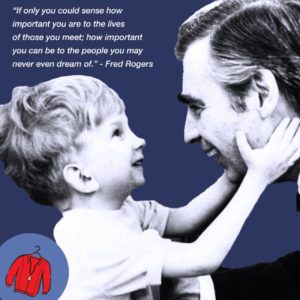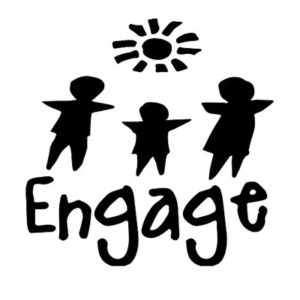 03 Dec 2018
03 Dec 2018
Loneliness
I’ve had the privilege of working with many different types of people-addicts, veterans, couples, singles and even a few kids. Although they each had individual issues, they each grappled, in some way, with loneliness.
At it’s core, loneliness is about a lack of connection. That connection could have been broken by the death of a loved one or the end of a relationship. Another type of loneliness can occur when a person makes a whole change of environment. Perhaps you moved to a new state for a job or fresh start. Making new friends can take time and that might lead to some lonely days. Loneliness can be weakened or strengthened depending on one’s perspective. Let’s focus on three types of loneliness and take a look at strategies to overcome these types of loneliness.
Loneliness in relationships:
Most of my work is with couples. Couples can lead a lonely existence in a relationship when they don’t feel listened to. Being lonely in a relationship seems odd because we’re with somebody. We share space with that person. But if key ingredients are missing then the feelings of loneliness can and most likely will occur. Communication is a main “relationship” ingredient and if BOTH sides of the couple aren’t willing to work on this skills, that loneliness of not being heard and listened to can lead a spouse or significant other to another person or the end of the relationship.
Typically after an initial session, I email all my couples worksheets on reflective listening skills and creating fair fighting rules in handling disagreements. Bad listening is a learned behavior that perhaps we learned from our parents. We can learn new behaviors to improve our listening abilities. Having fair fighting rules, if you use them, can move a couple from an adversarial relationship (Me, you, win, lose) to learning to fight the problem together and not against each other. These are building blocks in becoming less lonely in a relationship and more connected.
Loneliness in singleness:
Are you single? Do you struggle with loneliness? Maybe not every day, but sometimes? I can relate. I didn’t get married until I was 41 years old. I spent most of my young adult life in single groups and dating sites on the internet hoping to find that one connection that would cure my feeling lonely. When I was 30, I watched a lot of friends get married. I kept asking God when was it going to be my turn to start a family. I wasn’t a hunk, but I’ve always been a nice guy. “Nice guys finish last.“ I felt like that and my loneliness led me to have some incredible pity parties. Me, myself and I showed up and all three of us never made the party better. It wasn’t until I started working on myself and focusing on personal growth areas that I began to change and that brought about a different perspective shift.
My focus took a change to where it wasn’t all about me. My identity wasn’t rooted in desperation to be with someone any more. I found my security as a single person was rooted in my faith and having healthy friendships. I could be independent and happy and still be single. One day I was listening to a guest speaker at my church and he had experienced incredible loss in his life. He had lost his whole family in a massive flash flooding accident? He was the only one that survived. Google: Robert Rogers family and learned how he coped; had appeared on many of the morning talk shows and people asked him how he could go on and survive such a tragic event. He said it was the peace of God that was getting him through it and quoted this verse that changed my life:
 Philippians 4:6-7: Do not be anxious about anything, but in every situation, by prayer and petition, with thanksgiving, present your requests to God. And the peace of God, which transcends all understanding, will guard your hearts and your minds in Christ Jesus.
Philippians 4:6-7: Do not be anxious about anything, but in every situation, by prayer and petition, with thanksgiving, present your requests to God. And the peace of God, which transcends all understanding, will guard your hearts and your minds in Christ Jesus.
Right then the light bulb turned on in my brain. I wanted that peace in my love life. So, at 38 years old, this scripture set me on a new path. I trusted all of my hopes, my dreams and my expectations of being with someone over to God’s care. I had to be at peace whether I married someday or never dated again. What about you? If you’re single, how have you coped with feeling lonely in your singleness? Moping about it and having endless pity parties won’t help. Remember, if you do nothing, nothing changes. Focus on others. Volunteer at your church or a community group. Find social groups that align to your interests and hobbies so you can meet other people. If you need more ideas, reach out to me. I can help because I’ve been there. I would love to help you take the first few steps of finding happiness in being single.
Loneliness in children:
One little documentary was released this summer that captivated the nation if not the world. Won’t You Be My Neighbor? is about Fred Rogers and his passion for making connections. He connected with kids like almost nobody else. He showed them that no matter who they were, they had value. They mattered, and they are loved. He also listened to the children he interacted with. He was genuinely interested in what they had to say. That told them that they had a voice. Most of us have seen Mr. Rogers Neighborhood on PBS when we were younger. The message of Mr. Rogers needs to be repeated over and over. Because many of today’s kids feel like they don’t have a voice except on social media and sometimes that’s a scary place to be. Research continues to show that kids and teens that are constantly on social media and not interacting in person are more prone to loneliness and self esteem issues.
The ills of society have left our kids feeling lonely. Divorce has caused kids pain and hurt and even damaged their thoughts. Often, their hopes are drowned out by the roar of their parent’s anger. Some children become pawns in a game of power play that parents create to get their kids to side with them.
What can we do about this growing epidemic?? Here are a couple of suggestions.
- Interact with your children. Make time to take them on parent-child dates. Trips in the car are valuable for conversation. Listen to them. Get to know you kids interests, hopes and fears. Find out who their friends are and get to know their parents. Have fun with your kids and let them know it’s ok to have feelings, good and bad.
- Be consistent in your own behavior. Follow through with what you say you will do. Model appropriate behavior around your children. Your kids are watching you and they look to you for moral, emotional, structure, and spiritual guidance. If you’re not providing these, the child that gets older can become more susceptible to listening to those voices and examples that do not have their best interests in mind.
Lastly if a child is lonely, we have an incredible opportunity to help them form healthy connections? Do they have someone they can talk to and spend time with like a teacher, friend, relative, mentor or parent? We all need healthy connections and children are not different. This article has just scratched the surface to what some face. Counselors at Armstrong Family Counseling have a wealth of experience to help adults and children cope with loneliness.
Connecting with others is a big way to overcome the stigma of loneliness. If you are lonely and need to talk, contact us today.
 06 Jun 2018
06 Jun 2018
A Key to Connecting with Your Kids
Just Get Out of the Comfort Zone. Just Be DAD.
Remember the song “Danger Zone” from the movie Top Gun? I loved that movie, and the Kenny Loggins song is a must for any retro fan. In the movie, the song was the perfect soundtrack for those flying scenes, as the pilots pushed their aircraft to the limits and beyond, into the danger zone, where the engines could stall or worse. It was a perilous place to be.

Serious mountain climbers know about the “death zone.” On Mount Everest and some of the other highest peaks in the world, once a climber reaches about 26,000 feet, the amount of oxygen is insufficient to sustain human life. Many climbers have died because they weren’t properly prepared or didn’t have enough oxygen with them.
Most of us will probably never climb into a fighter jet cockpit or attempt to summit the world’s tallest mountain, but there is another danger zone where we dads often find ourselves with our families: the comfort zone. I like being in the comfort zone. It’s free of stress and the craziness of life that is so often around me at home. Some might call this my “happy place.” There are times that we need an oasis where we can drown out life around us and find peace and serenity. But if we want what’s best for our families, the comfort zone is a place we are never meant to stay for very long.
When I first got married, I married not only my wife but also her family, which included two boys in their mid to late teens. For a while I had a hard time building a relationship with them. I’d get home from work in the evening and they’d usually be in the living room, watching a television show I didn’t get or couldn’t care less about. It was much easier for me to get my dinner and retreat into the more comfortable sanctuary of my bedroom. I could read a book or watch TV and I didn?t have to engage with them unless it was on my terms.
At the time, I thought: What was the point? I couldn’t relate to them and they certainly couldn’t relate to me, at least on the surface. Clearly, I was missing the point. I was off in my comfort zone, and I wasn’t going to be intentional about being a dad to them.

My wife LeeAnn was so patient with me, and every now and then she would enter my serene hideaway and remind me that I didn’t marry just her, but also two boys she loved deeply. If I wanted to develop a better relationship with them, I had to leave the Comfort Zone. I had to engage them.
That word “engage” has transformed who I am as a father. This didn’t happen overnight, and there were starts and stops as I kept fighting off selfishness and the desire to go back to the Comfort Zone. But then one day my father-in-law gave me advice on how to be intentional as a dad. He said that if I wanted to become closer to the children, I had to drop the labels, quit thinking of them as my stepsons and foster daughters but rather as my sons and daughters. I had to stop labeling myself as a step dad and foster dad, and just be dad. He said the labels that we use often create distance and give those of us that are not biological dads an excuse to keep that separation.
I had to stop labeling myself as a step dad and foster dad, and just be dad.
He was right. While an attorney might say that, from a legal perspective, step and foster kids are the correct wording, I have grown past that and see them as my children, for as long as God allows them in my life. Several months ago, we decided after 5 years of fostering, to take a break. It was good for our marriage, and last year, I discovered a whole new zone: The Grandparent Zone. Our youngest son and his wife gave birth to a beautiful baby boy. Now I get to learn to just be grand-dad!
Being an engaged dad means being hands-on and enthusiastically involved in your children’s lives. It’s getting to know them on their level and being consistent in letting them know you are there. It also means that as they get older you are coaching them and modeling how to live by your actions and how you live. An example of this is how they see you handle conflict or adversity and perhaps more important, how you treat your spouse or their mother. Believe me, your young ones are watching.

You can’t do these things by being in your comfort zone. That sends a whole other message that says “Leave me alone,” or “You’re not worth my time.”
That sounds cruel, doesn’t it? Yet our country is full of disengaged fathers. I see it in the neighborhood we live in, and as a foster dad, I see it in the families of the girls we work with. Many dads are physically absent, others are present but emotionally distant, and some have hurt their kids so much that they aren’t allowed to be around and in their life.
Engaged fathers and father figures really do make a difference. Since I have left my Comfort Zone as a dad, my relationships with both of my stepsons are vastly improved. Things are far from easy, but they can see that I’m more interested in them and many more activities and conversations have had positive results.
Do your relationships with your children need a transformation? Be an intentional, hands-on dad. You will make mistakes here and there, but you will also learn from them. Embrace your role as a father and make a difference in the lives of other kids. Close up shop on the Comfort Zone.
Even now, I have days when the comfort zone is awfully tempting. But I rely on my faith, my patient and loving wife, and other dads who encourage me.
Just Get Out of the Comfort Zone. Just Be DAD.

**Original article published by the National Center For Fathering**

